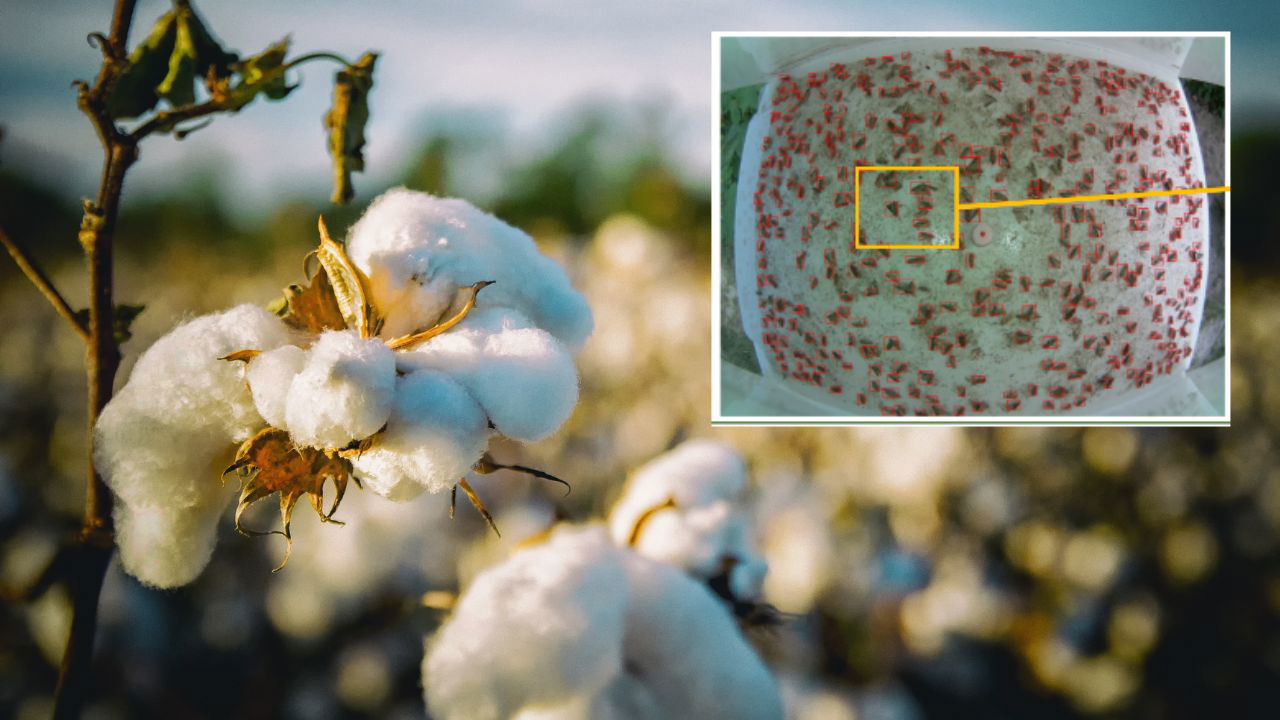
ICAR – Central Institute for Cotton Research (CICR), Nagpur, has introduced an innovative AI-powered pheromone trap designed to monitor pink bollworms (PBW) in real time. These pests, known for their resistance to Bt-cotton, have caused significant yield losses in India’s cotton-producing regions.
First noted in Gujarat in 2015 and Maharashtra in 2017, resistant populations spread to northern states like Punjab, Haryana, and Rajasthan by 2018-19. Factors like storing cotton stalks for fuel worsened outbreaks, as seen in Punjab in 2022 and Rajasthan in 2023, reducing both productivity and fiber quality.
These challenges have driven farmers to shift to alternative crops such as paddy, oilseeds, and pulses, significantly reducing cotton cultivation in states like Punjab, where the area under cotton dropped from 2.68 lakh hectares in 2018 to 0.97 lakh hectares in 2024.
The cryptic behavior and lifecycle of PBW make monitoring and timely management particularly challenging. While traditional pheromone traps help monitor PBW populations for insecticide applications, these methods face several drawbacks, including labor-intensive data collection, delays between surveys, and the inability to track pest densities effectively across multiple locations.
To address these challenges, CICR developed an AI-powered smart pheromone trap under the leadership of Dr. Y.G. Prasad and Dr. K. Rameash. This technology employs advanced machine learning algorithms (YOLO) with 96.2% accuracy to detect and count PBW moths. It provides real-time data, including images, insect counts, and weather information, directly to farmers and extension officials via an Android and desktop application.
A pilot project using this technology was conducted during the 2024-25 season across 18 villages in Punjab, covering three key cotton-growing districts: Mansa, Bathinda, and Sri Muktsar Sahib. Farmers received daily alerts and weekly advisories via multiple communication channels, including mobile voice messages and announcements.
The project achieved a significant reduction in PBW infestations, lowering pest levels to below 10% from previous years' 30-65% range. The use of smart traps also reduced pesticide applications by 38.6%, ensuring economic and environmental benefits.
Farmers have lauded the initiative for its effectiveness and the potential to revolutionize pest management. Encouraged by its success, the Ministry of Agriculture plans to expand this technology to other states for the 2025-26 crop season.
















